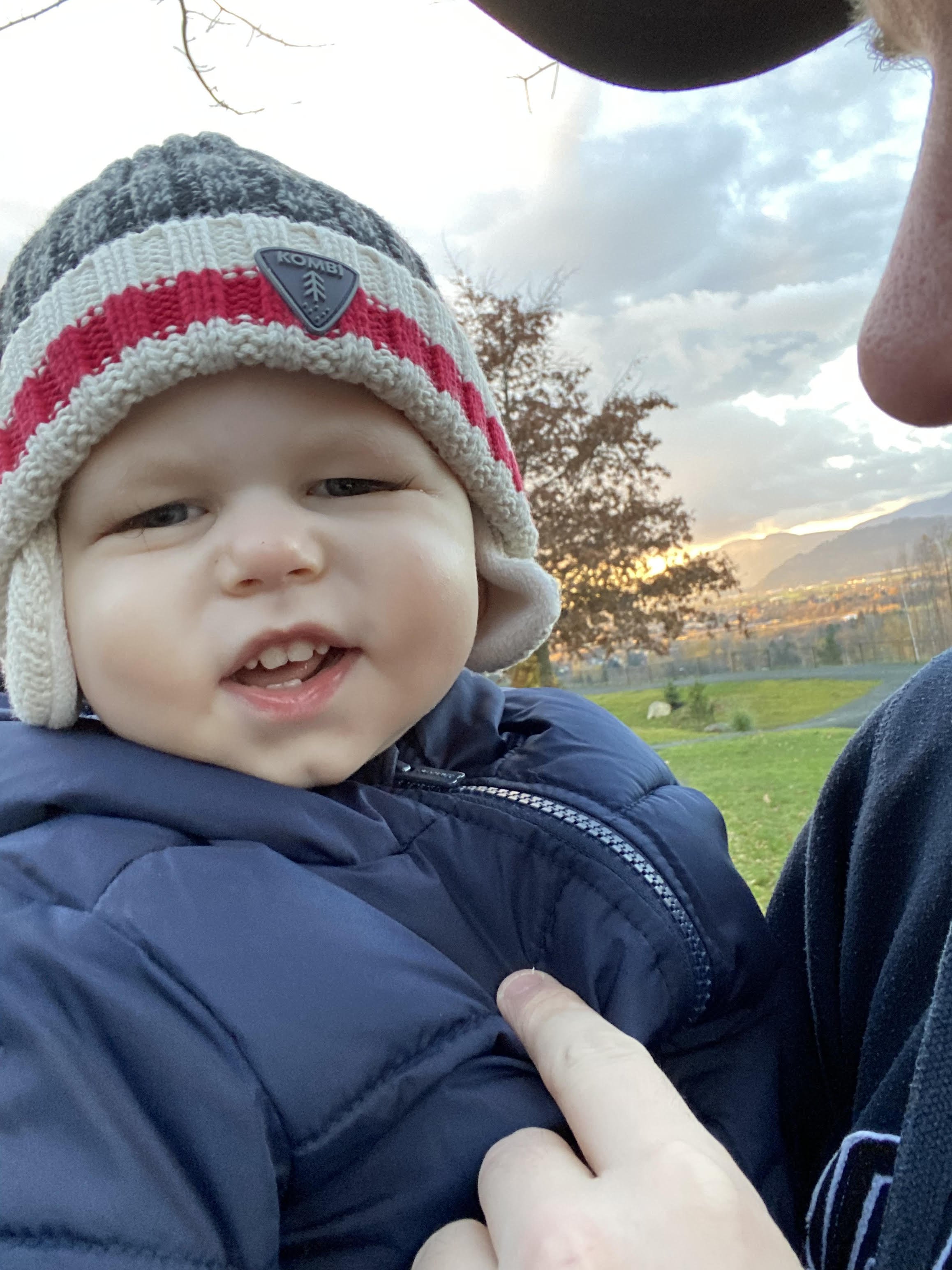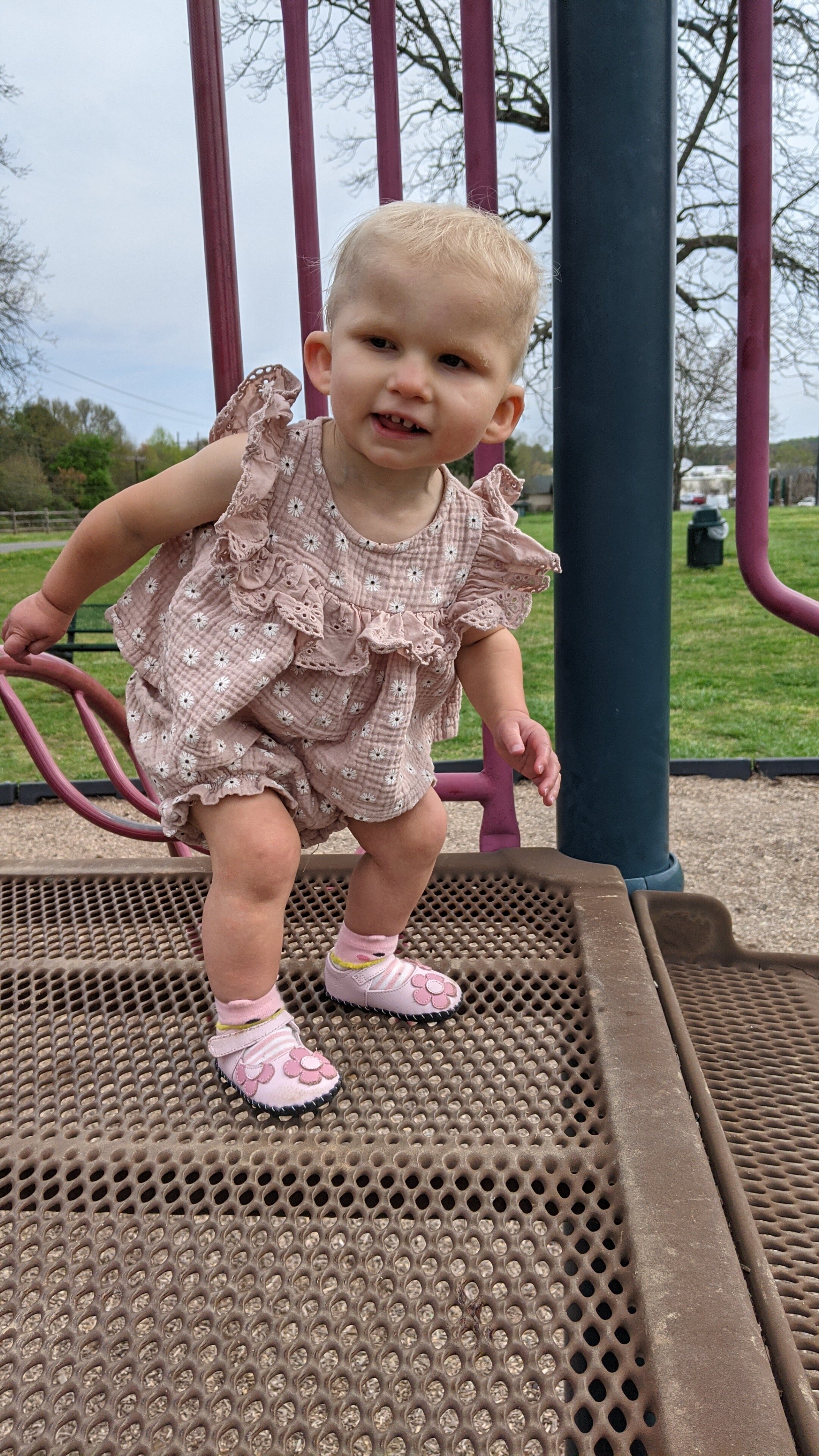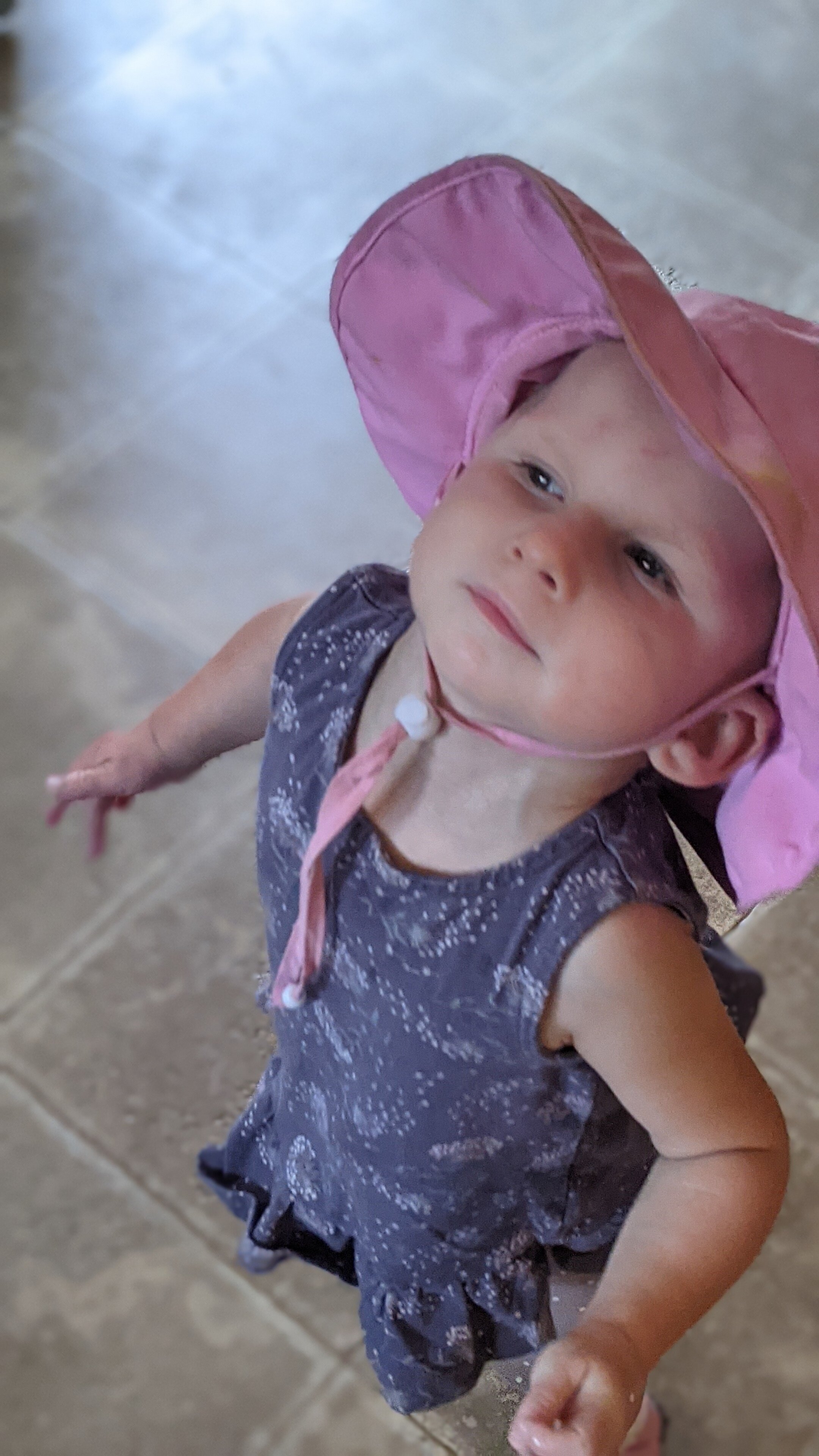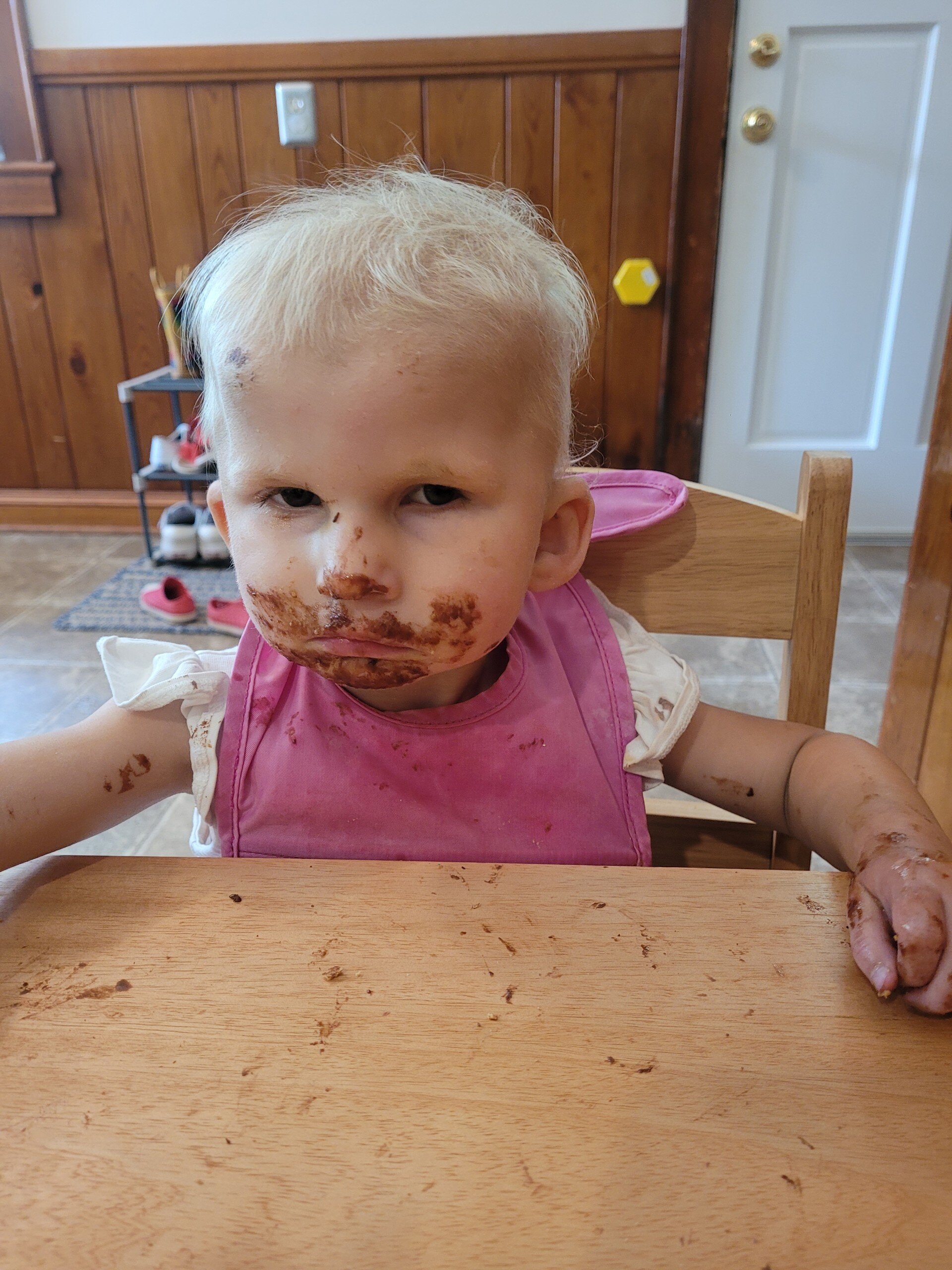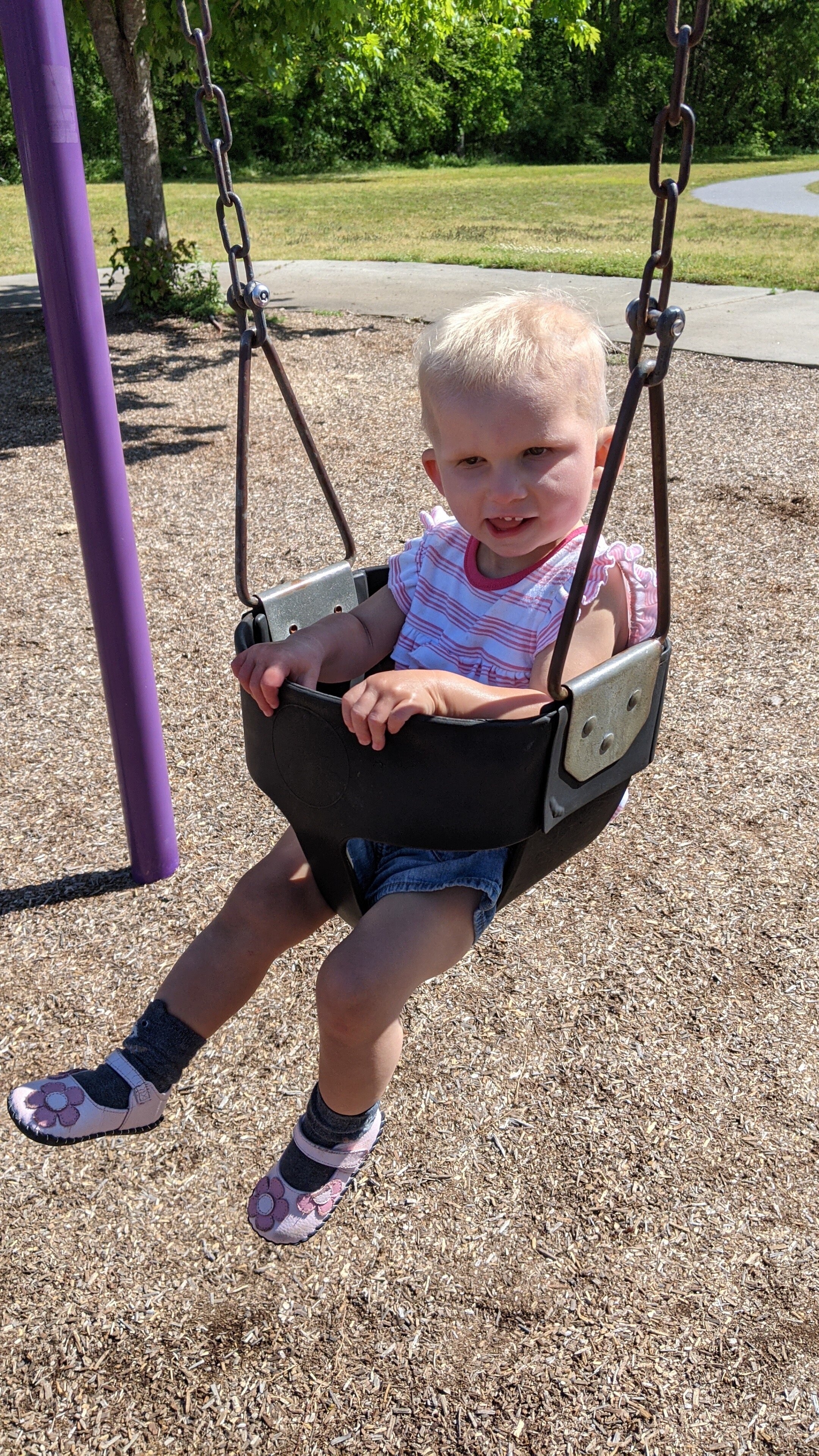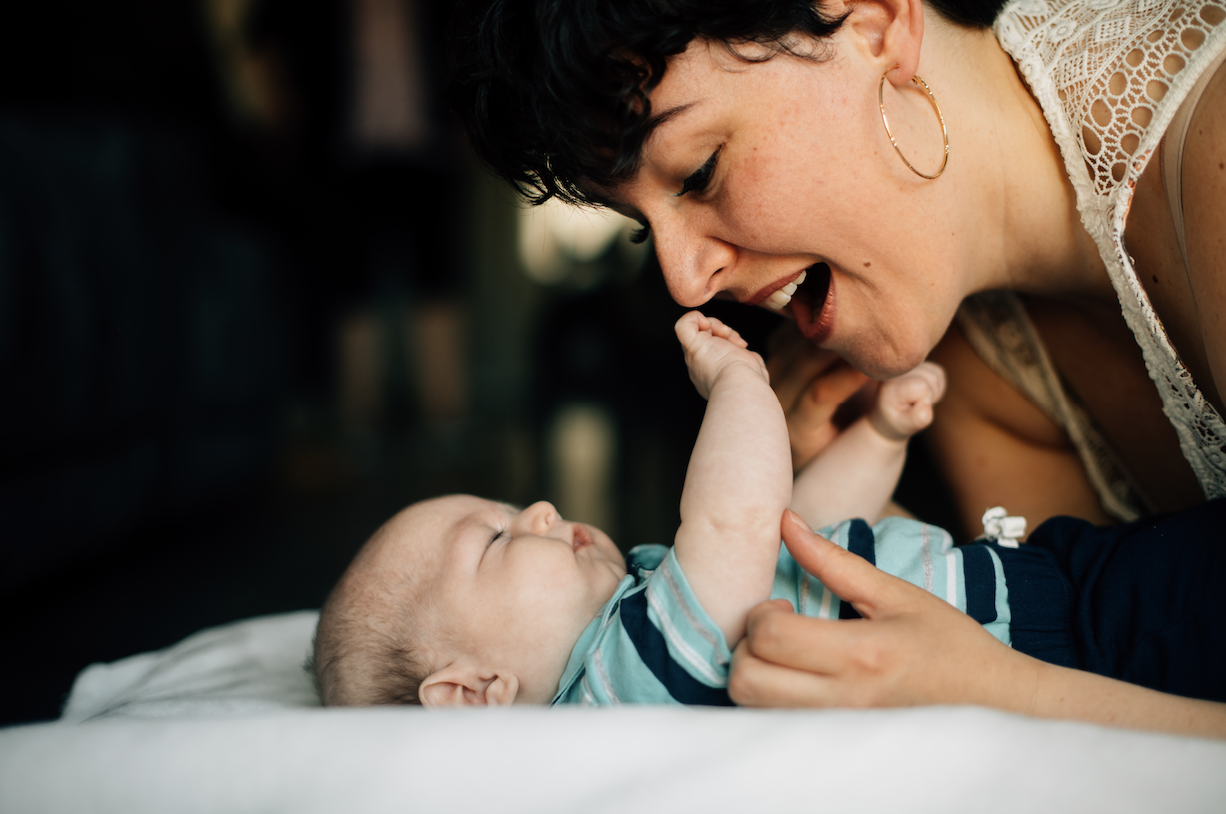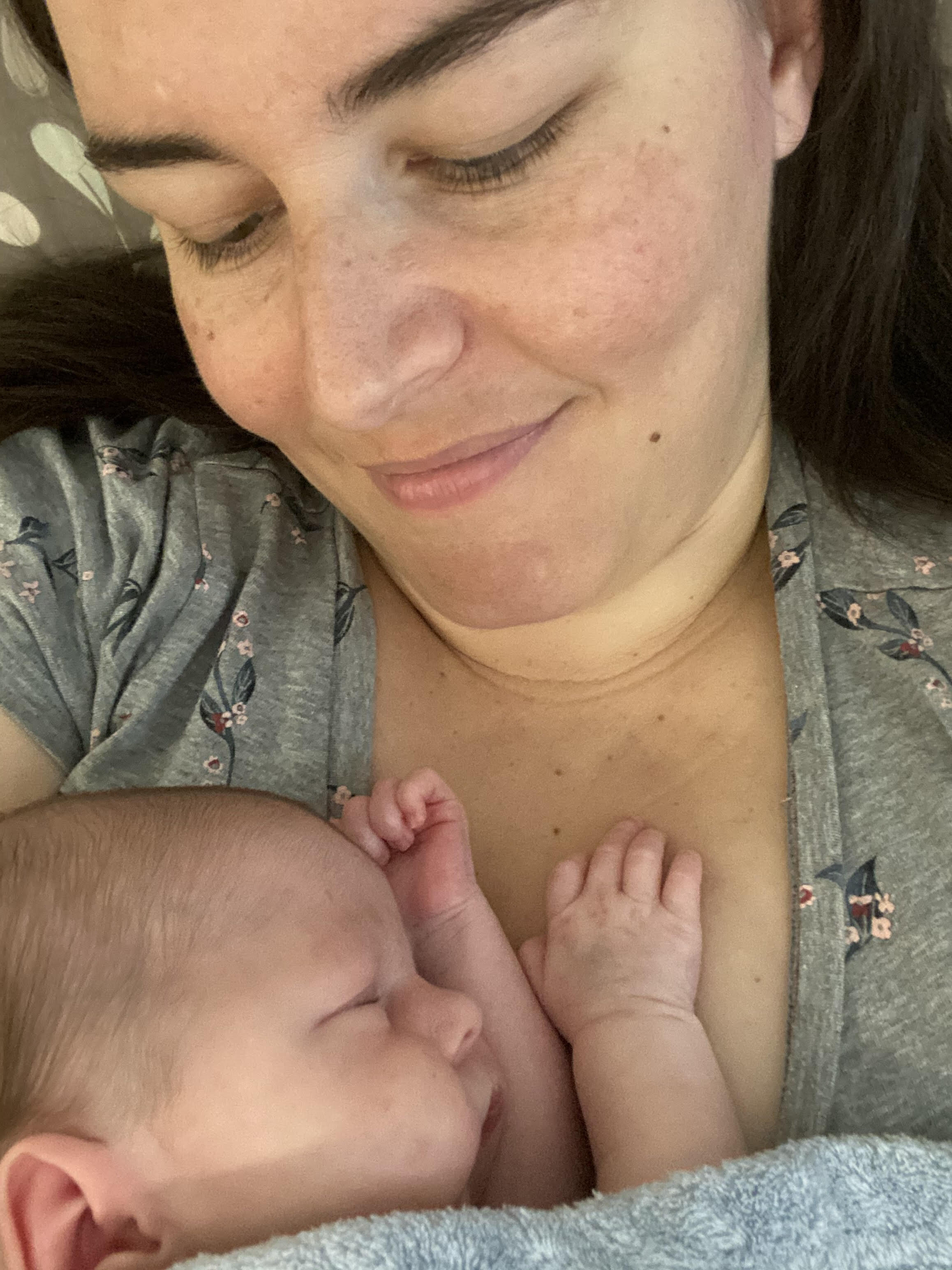Creating our Routine
Going Home. The words I had waited to say to my family that filled me with such relief. The numbers from the NICU would be behind me, no more monitoring the levels of spit up, no machines beeping during our attempted breast feeds, just me and my instincts. Which was enough…right?
I look back at the photos we took as we introduced Macklam to his home; a snap of Mack on his Grandma’s shoulder for the first time, a shot of his new uncle holding him, joining our busy full house. There were, however, no pictures of Travis and me rummaging around to find a makeshift IV pole to set up Macklam’s feeding pump, or of struggling to figure out how to anchor his new g-tube to his clothes in order to keep him from pulling it out. Being a great student my whole life, I had a small binder with medical jargon and diagrams sitting on the table. I was so thankful for this resource gifted from the nurses as we grappled through our first at home feeding.
The g-tube was a small medical device placed in his belly the week prior to assist with his eating. The NICU compared it to an earring, placed through the hole with a balloon keeping it inside. Two ports were on the surface: one resembling the plastic tab you pull off a beach ball and wrap your mouth around to fill it up with air. This port went directly to Macklam’s stomach, often giving us a glimpse of his stomach content. This would be where we would attach a straw like device with a blue port on the second end of it and a tab to secure it. It would twist into place, flexible enough to move with our little man. We were told to ensure it was secured to Mack’s stomach with a sticker or safety pinned to his clothes. The second port was used to insert medication with a special syringe. A third mechanism on the side allowed the balloon to be emptied inside his body. This kept the back of the earring secure and allowed us to refill it when needed. Once the straw was attached and secured to his clothing, we would warm my breast milk and pour it into a feeding bag which resembled an IV bag. The next step was referred to as “priming the line”. It required us to hang the bag and use gravity to force the milk through the tube and out the plastic tip, catching any drops that escaped in a cup placed on the ground. We would check for bubbles through the tube, so as not to fill his belly with unnecessary gas. Once the line was filled with milk, a tiny insecure lid was placed on the tip. We would hang the milk bag to a makeshift IV pole and attach the long thin tube filled with 10 mls of milk to his straw, plugged to his tube. We would place an oval shaped part of the tube coming out of the milk bag, referred to as the “cassette”, into the pump which resembled an old tape player. The machine would let out loud beeps as we prepared the math equation. How many minutes would we be feeding him? How many mls? Therefore our runtime will be 130. The math equations were in the later pages of the manual, notes in the margins. Stickies littered the first page of my manual from our pediatrician. Each pound required a set amount of milk in mls. I needed to keep eyes on the increments to not miss the opportunity to feed him the correct amount of milk. After 90 minutes were finished, the pump would beep loudly at us and I would turn it off and remove all the items as swiftly as I had put them together. It was like creating a small factory that would feed our child. As I sat watching the milk pump from the bag, I waited for his belly to fill.
His feeding schedule was every three hours for a 90 minute period and later 60 minutes, using his Infinity Pump. We decided we would split the night shifts with Travis staying up for the first two feeds and me waking up for the 3am and 6am feeds. Mack’s new soft sleep sack had a thick medical tube coming out the bottom, allowing us access to attach and detach during the night without disturbing him.
It all sounded convenient and simple and some of my friends with babies exclaimed “how incredible to have your baby sleep through the night at one month since he’s always full!” I would smile and joke “who knew this would be so much easier than typical parenthood!”
In reality, the tube was easily the most emotional chapter of motherhood for me. The one thing Macklam required to live was food. My breasts would fill with milk for him, my body was responding to his needs, flavoring my milk to match foods I had carefully selected during the day. I would pump my milk for him, watching him sleep. I was acutely aware that he couldn’t taste the milk I was providing and that we weren’t sharing an important moment that most mother’s get to share: feeding.
The night required a series of alarms on my phone. I would fall asleep at 9pm, then an alarm sounded at 1am to pump, then an alarm at 3am to prepare his bag of milk and attach it to his tube, sleep until the pump alarm woke me at 4am, remove the milk bag, clean it, put it away, go back to sleep and wake up at 6am to do it all over again. Our days were filled with the same routine, every three hours.
A Mother’s Love
My mom, Julie, became my life line at this time. Mom has always been my biggest cheerleader and best friend. I’ve idolized and admired my mom’s ability to overcome the challenges of teenage marriage and parenthood, challenging herself further to jump into a male dominated career path at 28 . Until meeting Travis, I was sure she would be the only person that I could be my best and worst self with. My mom has always been my safest place; warm, reflective and fiercely protective. She has never hesitated to choose us over anyone in her life. My brother and I have always looked up to her strength and unwavering love for us. My mom has always regarded us with respect and admiration, ensuring our confidence was built in realism about our abilities and strengths. My mother’s heart is in her kitchen, a small place that few get invited to. To create another person who would own a seat at that table felt like an honour. The unending hope and determination I’ve had for encouraging Mack to eat orally stems straight from a hope that he can enjoy my mother’s cooking and recipes she’s passed on to me.
I consider it a normal rite of passage for new moms to have their mothers guide them into their own motherhood through stories of similar scenarios and encouragement. Sharing our feeding routine did not feel at all as expected: I felt deep resentment and failure when I looked at the pump and medical equipment. I felt like I was doing motherhood wrong because it didn’t look like how my mom had fed me nor how I had planned to feed my baby.
My mom had often described how early motherhood looked for her. My brother and I would often wake up crying at one month old and she would prepare formula and heat it in a pot on the stove in our trailer. We would fall asleep eating and she would place us back in our crib. My reality would look different. On the off chance Mack woke up in the middle of the night, I was required to get a lot more creative putting him back to sleep. Feeding to sleep wasn’t an option so my husband and I had to go to other standbys such as rocking, swaying, shushing, bouncing on a ball etc. Nighttime feeding is a feat for any new parent but also a rite of passage. Imagine a 2am wake up, 45 minutes of creative parenting aerobics and your phone alarm going off, catching it with one hand. The baby didn’t wake! Thank goodness! The alarm means it’s time for a feed. Which means getting your kiddo comfy in the bassinet, preparing milk and getting the tubes all attached to him without him waking. Imagine the typical parenting moment of putting baby down in their bassinet without waking them, the fear with each movement, not wanting to disturb them and holding your breath. Imagine now that you have to go back to this sleeping baby and attach a tube to another tube attached to his stomach...without waking them. And then pressing loud buttons with no sound control...and not waking him. And finally, having the alarm go off on the pump after the feed finished which...inevitably would wake the baby.
I grew up near Mt. Washington, a well known Canadian skiing mountain. Though I was never brave enough to explore the slopes, I learned that each route was categorized by difficulty: from bunny hill to black diamond. I used to tell Travis I would have loved to start parenting on a bunny hill, but we managed to get ourselves a black diamond. Yes, the risks are terrifying and pain staking, but the views are exquisite.
The mornings were chaotic as I shifted our feeding equipment from our downstairs make-shift IV pole, an easel that took up half the living room of our small suite, to the upstairs set up. I would haul up a bag of supplies and a small insulated bag full of my milk bottles, measured to exact amounts.
Lactation consultants assisted with our breast feeding attempts and had told me to keep Mack on me as much as I could, close and naked if possible. This was an impossibility. The fluidity and flexibility of motherhood was replaced by a military schedule around the clock. I would hold Mack and enjoy his warmness on my chest…until my phone buzzed to pump. I would then pass Mack to my mom, placing him on her chest the same way, telling myself he would be just as comfortable. I would then pump, measure my milk, store my milk, clean the pumping equipment. I would rush back to Mack who would be sleeping soundly on my mom. Should I disturb him? I would prepare the medical equipment for the next feed. Warm the milk, run the line, clamp, cap, attach the machine, set up the time on the pump. Then I would need to reach under Mack and bring him to his change pad to put in the tube that would feed his milk from the pump to his g-tube and stomach. He would often cry as he was jostled awake. I would wrap him back up in his swaddle and try to get him comfortable while he was attached to his feeding line. He would root and suck on his soother, imitating feeding. My heart broke each time, often crying while I felt so close but also so far away, unable to physically handle attempting to breastfeed while tubes were tied around us both.
For some moms, they are able to master breastfeeding in the early months and make it look effortless. For me, I was still new, having only done 1-2 a day in the three months of Mack’s life. In the mornings, we would do a breastfeed “attempt”. I always referred to it as an attempt, thinking of the paperwork from the NICU that our occupational therapist wrote. It never felt like a real way to feed Mack but more like something to give him better chances at oral development and a way to make me feel I was at least trying. I was dogged about these attempts. Mack was unable to latch, coordinate his suck, swallow, breathe and was found in the NICU to slightly aspirate if given full rein to feed. Breastfeeding was my time to see where his feeding abilities were each day, to access, to hope and to, inevitably, fall apart when things had not improved. Each morning, I woke up wondering if today he would learn to eat. Some days, Travos or Mom would suggest taking a break and I would reply in a small determined voice that I would not give up on him. I refused to turn to the machinery running my son’s feeding and let it win. I believed he could learn.
Each breastfeed attempt required a nipple shield and a lot of patience. Mack would eagerly attach to the nipple shield, often pulling it off several times through our “feed”. I would place Mack in his bassinet or with my mom to reattach the nipple shield, which required a thorough cleaning and reapplication with water. I would let him suck as long as I could, from six to ten sucks, pacing him to ensure he was breathing. If I missed his subtle cues that he had taken in too much milk to handle, he would hold his breath and let out a tiny squeal. I knew from the NICU that, without monitoring, this was a sign of danger and lowering oxygen levels. Mack’s improvements were frustratingly slow but were improvements nonetheless.
Throughout the day, my mom’s arms became the constant calm for Mack. She held him while I whirled around in the daily activities, appointments and chores. I still feel broken thinking about this time, like I wasn’t present for him in those early days, so caught up in the feeding struggle and whisked away for appointment calls. When you see your son warm and cozy somewhere you trust, it makes sense to continue to do the difficult chores, tasks and correspondence that goes with special needs parenting while my mom got to enjoy holding him, smelling him and listening to his breathing. I knew the safety of my mom’s love and I trusted her to keep him safe while I continued the job of resource shopping, e-mailing and zoom meeting for Mack’s appointments. On top of this, I carried a burden of guilt that my mom was becoming such a required help since the tube and his complications had so many more things to worry about than what I expected of motherhood. I felt codependent and unable to handle motherhood on my own. Special needs parents need to be everything; a receptionist, a doctor, a nurse, a therapist. I was learning this role at hyper-speed with the enthusiasm of an overachiever. My phone was full of notes I thumbed through while holding Mack. What do I do next? Which calls and appointments? Can I fit in a second breastfeed with him tomorrow? I couldn’t slow down, couldn’t stop. If I did, he wouldn’t succeed. I know now that this is a very common feeling for moms and special needs moms especially. We often forget that breaking for our own mental health makes us better moms.

